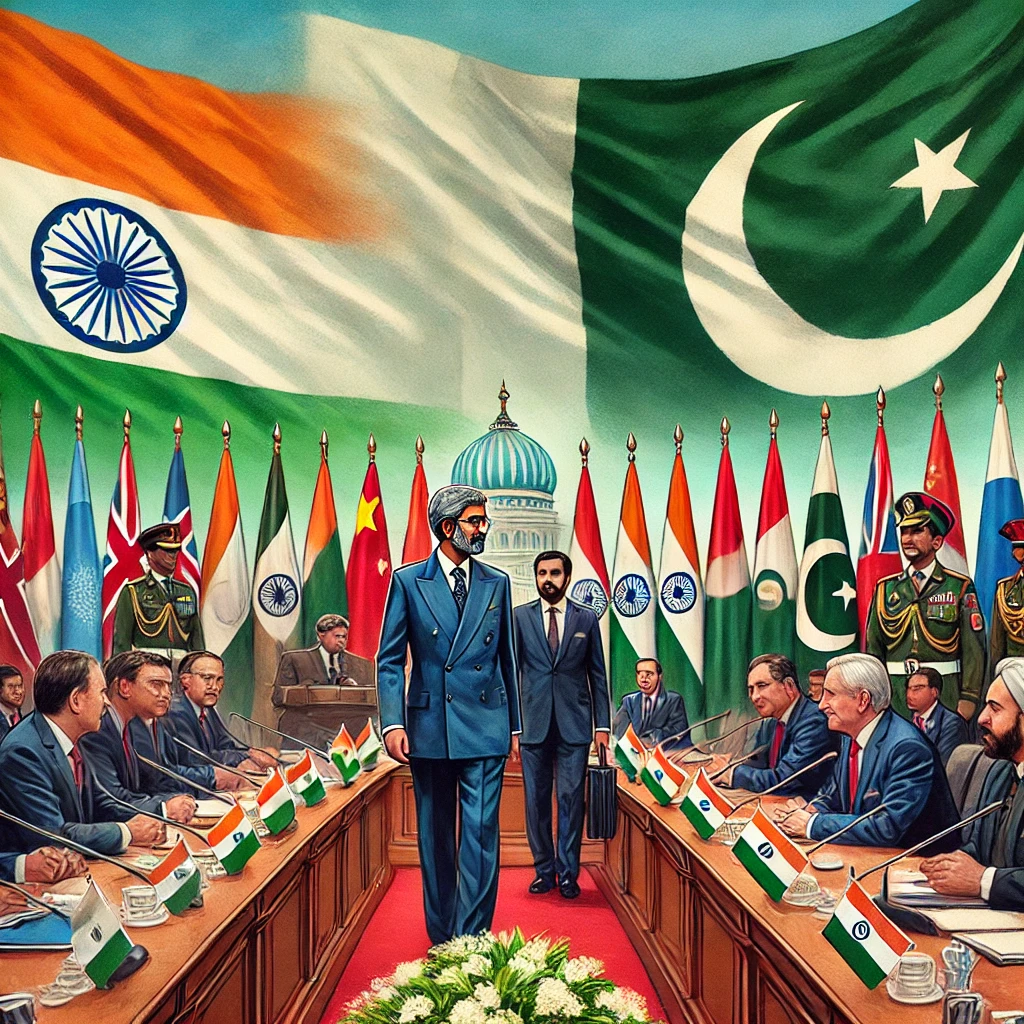
Merz takes charge: Germany enters a new political era.
Germany’s conservative CDU/CSU alliance’s seasoned leader, Friedrich Merz, formally became the nation’s next Chancellor.
His election comes during an era of political change following years of coalition government.
Unlike his successors, Merz stands more conservatively and economically liberal; his triumph marks the start of a new path for German home and international policy.
His leadership comes at a period Germany is facing severe domestic and external difficulties.
Domestically, the nation is experiencing calls for more robust security and immigration laws as well as inflationary pressures and an energy crisis.
While responding to rising tensions in Eastern Europe and adjusting to the post-COVID global economy, Germany is working internationally to redefine its position inside the European Union and the NATO alliance.
India-Germany Ties: a Strategic Moment
The choice of Friedrich Merz presents India with a special chance to strengthen and revitalize its strategic cooperation with Germany.
Germany had already kept close relations with India under Chancellor Olaf Scholz, stressing trade, investment, and climate action.
Those areas are probably going to be given more priority if Merz is in power, particularly in defense and digital technologies. New areas of collaboration could also surface.
Under Prime Minister Narendra Modi, the Indian government shares many of the same issues Merz has brought up in his political agenda:
enhancing national security, increasing economic competitiveness, and stressing the part infrastructure and technologies play in development.
These complimentary objectives provide a natural forum for cooperation between the two nations.
Financial Alignment and Investment Possibility
Among India’s most significant European Union economic partners is Germany. It is a significant player in the manufacturing sector of India and a main advocate of its engineering and automotive sectors.
With his pro-business attitude, Merz is probably going to inspire more overseas investment—including in developing countries like India.
German companies aiming to increase manufacturing and supply chains outside of China might greatly support India’s “Make in India” campaign, which seeks to grow manufacturing and generate employment.
India is ideally positioned to gain from Merz’s emphasis on economic reform and lowering of Germany’s reliance on single-country supply chains.
Still another vital area of alignment is trade. Talks for an India-EU Free Trade Agreement have long been under way,
and India might find a strong champion for advancing these negotiations given Germany is now led by a chancellor ready to regain global economic leadership.
Defense and Cooperation on Security
Strengthening of Germany’s defense capability is one of the fundamental features of Friedrich Merz’s agenda.
He promises to modernize the German armed forces and raise military expenditure. This allows India,
seeking to improve its own defense technologies and capacities, more cooperation in defense manufacture and research and development.
Concerns about world security, maritime stability, and the emergence of cyberthreats both nations have had shared are Under the “Atmanirbhar Bharat” (self-reliant India) program,
Germany with its sophisticated technology foundation can become a major ally in India’s attempts to modernize its defense industry.
Under the Merz-Modi leadership mix, joint military exercises, cybersecurity best practices exchange, and defense commerce might all become regular elements of India-Germany ties.
Innovation Partnerships in Technology and Industry

Friedrich Merz is well-known proponent of digital innovation and bolstering of European technical supremacy.
Germany’s dedication to funding research, education, and emerging technologies including artificial intelligence, green energy, biotech, and biomedicine presents India with a partner with like objectives.
India boasts a growing startup scene as well as a sizable pool of engineers and software developers.
In this regard, strategic cooperation could comprise funding alliances between German and Indian businesses, innovation centers, and cooperative research projects.
Technology transfer agreements and cooperation in fields such smart cities, electric vehicles, and renewable energy will help to confirm this relationship.
The strength of Germany in high-precision engineering and India’s digital transformation vision may nicely complement one another in generating solutions for worldwide markets.
Environmental Change and Ecological Growth
Germany and India both pledge to be champions of sustainable development and combat of climate.
Long leading in renewable energy, especially solar and wind, Germany has India also wants to reach net-zero emissions by 2070 and has achieved notable development in increasing its capacity for renewable energy.
Chancellor Merz has backed green technologies as a means of promoting economic development.
His government is supposed to advocate more global collaboration in climate change mitigation.
For India, this offers an opportunity to get German best practices, finance ideas, and cutting-edge green technologies.
Given both countries contend with environmental stresses of urbanization and climate variability, joint projects in sustainable agriculture, urban planning, and water management should also be investigated.
Geopolitical Alignment and Global Governance
Friedrich Merz sees Europe’s part in world affairs clearly. In military and international policy, he advocates strengthening the European Union and boosting strategic autonomy of Europe.
Through its leadership in the Global South and its participation in events like the G20 and BRICS, India too has been claiming a more prominent presence on the world scene.
On international venues, this common idea of strategic autonomy and multilateralism can help Germany and India get closer.
Both countries embrace a rules-based international order and can cooperate to further change of organizations including the International Monetary Fund, World Trade Organization, and United Nations Security Council.
Merz’s leadership might also affect the EU’s general position in the Indo-Pacific area, where India is a major actor.
A fundamental element in India-Germany relations might be more harmony on regional stability, free navigation, and economic cooperation in the Indo-Pacific.
Cultural Diversity and Education
Apart from politics and economy, cultural and intellectual interaction has long been a bedrock of India-Germany ties.
For Indian students seeking further education, particularly in science and technology sectors, Germany is a common destination.
Merz in office increases the possibility that research partnerships and student exchange will keep expanding.
Encouragement of language acquisition, travel, and academic alliances will serve to deepen people-to–person relationships and lay a firmer basis for long-term bilateral collaboration.
A New Chapter: Strategic Cooperation
Arriving as Germany’s new Chancellor, Friedrich Merz represents a turning point for world diplomacy.
For India, it offers fresh chances to strengthen its strategic link with one of the most powerful countries in Europe.
Both leaders have the power to define a fresh period of collaboration based on common ideals of economic development, democratic governance, and technical advance.
Partnerships like that of India and Germany will be increasingly important as the globe gets more complicated and linked to guarantee world peace, sustainable development, and innovation.

Under Merz and Modi, this partnership might soar, benefiting both countries and promoting world peace and prosperity.






